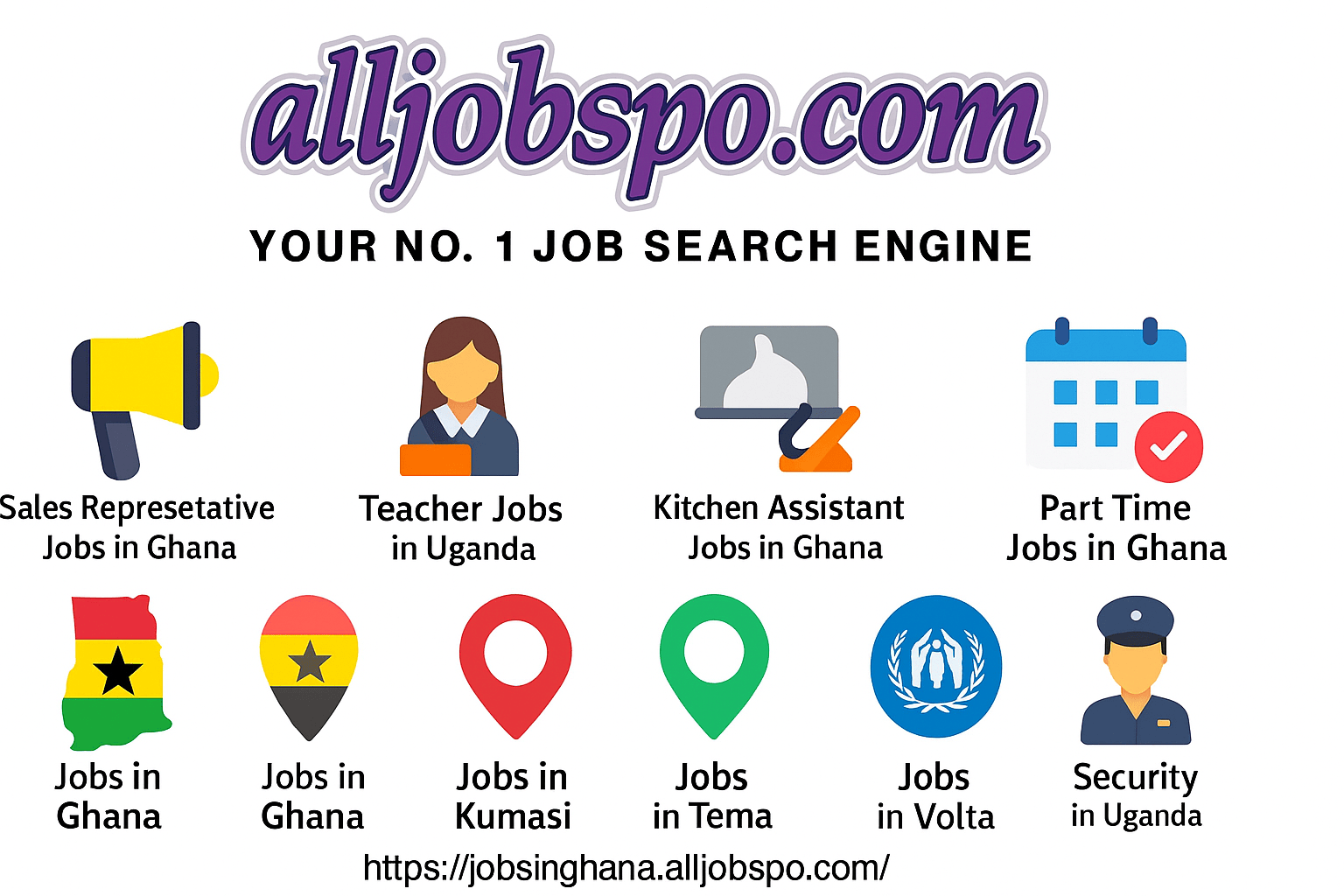Jobs in Kumasi: Opportunities, Industries, and Employment Outlook

Kumasi, the capital city of the Ashanti Region, is one of Ghana’s most vibrant economic hubs. Known as the cultural heartbeat of the country, Kumasi is also a thriving center for commerce, education, and industry. With its growing population and strategic location as a major trading center, Jobs in Kumasi offers diverse job opportunities across multiple sectors. For job seekers, understanding the employment landscape of the city is essential in identifying career paths and opportunities for growth.
The Economic Importance of Kumasi
Kumasi is the second-largest city in Ghana and serves as a gateway for trade in the middle and northern parts of the country. The famous Kejetia Market, one of the largest open-air markets in West Africa, highlights the city’s strength in trade and retail. Beyond commerce, Kumasi has also become a hub for education, healthcare, real estate, construction, and hospitality, making it an attractive place for job seekers from different backgrounds.
Major Job Sectors in Kumasi
1. Trade and Retail
Commerce is the lifeblood of Kumasi. Thousands of traders, wholesalers, and retailers operate daily, creating employment for sales attendants, shopkeepers, logistics workers, and financial service providers. From clothing and food to electronics and household goods, the demand for retail services ensures a steady supply of jobs.
2. Construction and Real Estate
Kumasi is rapidly expanding, with new residential, commercial, and industrial projects springing up. This has created demand for masons, carpenters, architects, engineers, electricians, and project managers. Real estate agents and property developers are also benefiting from the city’s urban growth.
3. Education
Kumasi is home to prominent educational institutions such as the Kwame Nkrumah University of Science and Technology (KNUST) and several senior high schools. This creates jobs for lecturers, teachers, administrators, and non-teaching staff. Private schools and vocational training centers also contribute significantly to employment in the city.
4. Healthcare
Hospitals like Komfo Anokye Teaching Hospital and numerous clinics and pharmacies across Kumasi employ doctors, nurses, pharmacists, laboratory technicians, and support staff. With the city’s growing population, the demand for healthcare workers remains high.
5. Hospitality and Tourism
Kumasi attracts both domestic and international visitors, drawn by its cultural heritage and events. Hotels, guesthouses, and restaurants employ chefs, waiters, receptionists, cleaners, and event managers. Cultural tourism linked to the Ashanti Kingdom also boosts jobs in this sector.
6. Transportation and Logistics
As a central trading hub, Kumasi relies heavily on transportation. Jobs are available for drivers, transport operators, mechanics, and logistics coordinators. Delivery services, fueled by e-commerce growth, are also expanding.
7. Technology and Startups
Though still developing, the tech sector in Kumasi is growing, supported by entrepreneurial hubs and innovation centers. Opportunities exist for IT specialists, software developers, digital marketers, and freelancers offering online services.
Salary Expectations in Kumasi
Salaries in Kumasi depend on the industry and level of experience. For example:
1. Sales attendants in retail may earn between GHS 800 – GHS 1,500 per month.
2. Teachers typically earn GHS 1,500 – GHS 3,000, while lecturers at universities may earn more.
3. Construction professionals such as engineers can earn GHS 3,000 – GHS 8,000 monthly.
4. Healthcare professionals, particularly doctors and nurses, earn competitive salaries compared to other sectors.
Freelancers and digital workers may earn even higher, depending on the projects and clients they secure.
Challenges in Kumasi’s Job Market
While opportunities abound, job seekers in Kumasi also face challenges such as high competition, especially in retail and education. Many young graduates struggle to secure formal employment, leading to a rise in self-employment and entrepreneurship. Infrastructure challenges, such as congestion and limited office spaces, also impact businesses.
The Future of Jobs in Kumasi
Kumasi’s future looks promising as investments in infrastructure, education, and technology increase. The construction of new industrial parks, road networks, and business centers will create more jobs. As digital adoption grows, more opportunities will emerge in online services, freelancing, and e-commerce.
Conclusion
Jobs in Kumasi are diverse, ranging from trade and retail to construction, education, healthcare, and technology. The city’s dynamic economy makes it an attractive destination for job seekers looking to build a career in Ghana. With continuous skill development, adaptability, and entrepreneurial thinking, workers in Kumasi can thrive in one of Ghana’s most important economic and cultural centers.
- Art
- Causes
- Crafts
- Dance
- Drinks
- Film
- Fitness
- Food
- Игры
- Gardening
- Health
- Главная
- Literature
- Music
- Networking
- Другое
- Party
- Religion
- Shopping
- Sports
- Theater
- Wellness



